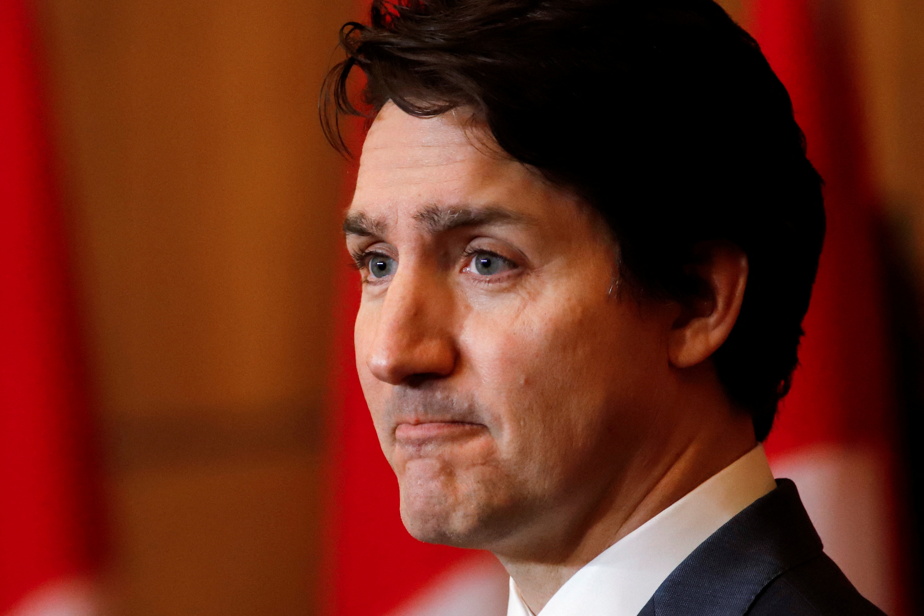(Ottawa) Ukrainian President Volodymyr Zelensky briefed Prime Minister Justin Trudeau on Monday about new ceasefire talks with Russia.
Posted at 6:52 PM.
Zelensky told Russian media ahead of the planned talks in Turkey that Ukraine was ready to declare neutrality, which would be a concession at the request of Russian President Vladimir Putin. The latter wants the Kyiv government to abandon its ambition to join the military alliance of NATO.
But Zelensky made it clear that Ukraine would need guarantees from Russia, which invaded the country on February 24, displacing millions of people.
On Twitter, the Ukrainian president said he had discussed cooperation with Justin Trudeau on “calling for sanctions and pressure”.
He also talked about Russia’s crimes and how the negotiation process is going.
“I am grateful for the willingness to consider providing additional macro-financial assistance to Ukraine,” said Mr. Zelensky.
Ahead of talks with Russia, he also said he was open to a compromise over the future of Ukraine’s Donbass region, which the Kremlin claimed territory and where eight years of fighting before the latest Russian invasion killed 14,000 people.
Russian advances in the capital appear to be faltering as the mayor of Irbin, a suburb northeast of Kyiv, says his town has been liberated from Russian forces. Earlier this month, photos of dead Ukrainian civilians, including a mother and two children, emerged from Irbin.
“The Prime Minister and the President discussed Russia’s ongoing military aggression and its devastating effects on Ukraine’s people, infrastructure and economy,” Prime Minister Trudeau’s office said in a summary of the call with Mr. Zelensky.
The two leaders discussed next steps, including the humanitarian, financial and military support Ukraine needs, as well as new sanctions against Russia, the press release said. But he did not mention President Zelensky’s recent negotiating positions with Moscow.
As Mr Trudeau’s office explained, “Prime Minister Trudeau reiterated Canada’s unwavering support for Ukraine’s territorial integrity, sovereignty and independence.”
energy issues
Earlier on Monday, Canada’s prime minister argued that while the Russian invasion may drive up energy prices, it continues to provide the impetus needed to make the planet develop greener energy sources.
“The world’s determination to reduce its dependence on Russian oil and gas is turning into an urgent necessity to shift our energy mix towards lower carbon emissions in our energies in the coming years,” Trudeau said at an event in southern Ontario.
His comments came as the G7 rolled back Russian demands for oil and gas access to energy-dependent Europe.
Germany’s energy minister said the G7 had no intention of complying with Russia’s demand that countries pay for natural gas exports in rubles.
“All of the G7 ministers are in complete agreement that this (would be) a clear unilateral violation of existing contracts,” Robert Habeck told reporters in Berlin on Monday.
The decision was made after a meeting on Friday between officials from Canada and its G7 allies.
Last week, Vladimir Putin said he would force “unfriendly” countries to pay for Russian natural gas in rubles and create a system to allow them to buy the Russian currency. This intention was widely seen as an attempt by President Putin to prop up the ruble, which had depreciated under the weight of Western sanctions.
“There is a real opportunity to understand that Vladimir Putin’s horrible mistaken decision to invade a peaceful neighboring country is causing the world, yes, difficulties right now about energy prices, about food insecurity. There is also more incentive to support each other, to support families while We completely reduce our dependence on oil and gas.
He said he had discussed helping Europe deal with its dependence on Russian energy supplies, including during his visit to Germany earlier this month when he and Chancellor Olaf Schultz spoke of greater cooperation in developing hydrogen as a clean energy source.
While Canada and its Western allies have clamped down on the Russian economy with sanctions and other trade measures since Moscow’s invasion of Ukraine, the ban on Russian energy in Europe is problematic, because Europe receives 40% of its gas and 25% of its oil. from Russia.
With the Associated Press

“Extreme twitteraholic. Passionate travel nerd. Hardcore zombie trailblazer. Web fanatic. Evil bacon geek.”


